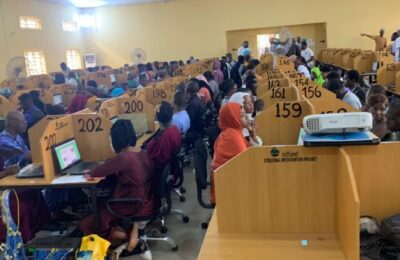About a month ago, the social media was agog with the organ harvesting scandal of the Ike’s. rather than rush to give an opinion, I took my time until I have access to some facts surrounding the issue. Since then, a few facts have emerged. My concern is not on the proprietary, legality or otherwise of the actions and inactions of the dramatis personae. Rather, I look at the issue as a symbolism of the covert and overt conspiracy of the elites against the weakest in our society; the defenseless poor people.
Since this scandal began, a few things have happened largely to improve the chance that the Ike’s get out of this as soon as possible. Firstly, the political class across party lines stood with the family of Ike Ekweremadu, secondly, a lawsuit requiring concerned regulatory agencies to disclose the real age of the supposed victimwas instituted, thirdly,great level of solidarity was shown by members of the national assembly and lastly, the constitution of a high-powered delegation to the UK – almost as if the case has become a diplomatic one as opposed to the criminal proceeding we all understood the case to be. The speed at which Ekweremadu got judgement at the court suggests that the highly placed often and consistently have their way in Nigeria.
What is most important to me is how the case exemplifies the philosophy of the elites in Nigeria. Ask 10 rich or upper middle-class people on the street of Lagos if they can relocate abroad or not, oftentimes, 8 out of 10 of them would respond in the negative – they would rather stay here and go abroad on holidays. Many times, the reasoning behind their decision is the “anyhowness” characteristic of Nigeria. For example, here, you can hire 4 maids and 3 drivers for a negligible fraction of your income, you can pick and choose what rule to break or obey, you can pay personnel of the Nigerian Police and the Nigerian Army to deal with anyone that “disturbs” you, you can buy justice and command undue advantage on many fronts, you can have police and military men attached to you for free if you have the right connections – Nigeria is a place where you can eat your cake while having it.
It is a known fact that social safety net is non-existent in our society leading to a situation where many poor people rely on goodwill of extended family members to pay school fees and afford many basics. You often find that in almost every family, there is one rich uncle or auntie that everyone is critical of because he refused to ‘help’ the other members of the family. While it is misplaced for anyone to hold their rich uncles or aunties for their social security needs that government should ordinarily provide, it is instructive to note that many of these rich uncles and aunties can break the bank for the education, health and general wellbeing of their kids and themselves while confidently neglectingthe minor needs of others, even if it would cost them nothing. They can go as far as soliciting for kidney and facilitating its transfer even when they are not a registered health practitioner in the local jurisdiction or the jurisdiction where the transfer is being proposed as long as it is for members of their nuclear family.
Across the four corners of Nigeria, the many conspiracies of the elites against the poor glare us in the face. Some of these conspiracies are the Almajiri ideology, children of school age as maids in homes, the classification of citizens as bandits and miscreants, the preference for giving fish rather than teaching to fish and the selective employment and association in corporate workspaces.
The Alma Jiri ideology
I lived in Nasarawa state at a certain stage in my life, every evening, I would see kids with plates begging for food from home to home. When I inquired further, I was told they were Almajiris. I asked my friend Yakubu to explain it to me. My friend told me they are children that are supposedly sent to Islamic schools. What is most instructing was that these children were often sent to states different from their state of birth and at a very young age – very many of them do not remember their homes nor their parents and would never be able to so do in the future. This program is replicated across all northern states. Many of these northern states had educated governors and a middle class who sends their kids to great schools across the world but did not see a need to stem the almajiri phenomenon through public policy. In fact, when the government of Goodluck Joanthan started to transform the almajiri program, many northern elites did not support the program and gladly left it to die as soon as Jonathan was out of government – perhaps because it helps their political sustenance. We have since then paid and continue to pay immeasurable price for this decision. Some of these prices include billions of naira paid in ransom, communal clashes and terrorism that has become a threat to the continuity of the federation.
Children of school age as maids in homes
In many homes, you find children of school age who are outright or pseudo maids. We have seen and read in the media some unprintable experience of these kids leading sometimes to crimes like child abuse, child trafficking, child labor and child prostitution. Closely related to this is also what used to be the practice where a rich uncle or aunt would take a child to the city from the village and use him or her to provide care to their biological children while dishing out the harshest treatments better imagined to some of these kids. We care so much about our wards but like the Yoruba saying, we send the children of others on dangerous errands.
The classification of citizens as bandits and miscreants
One key takeaway from my professor of sociology during my undergraduate elective course in sociology is that a child at birth is a “Tabula Rasa” meaning “clean slate”. Two definitions of the word I like very well are “the human mind, especially at birth, viewed as having no innate ideas” and “an absence of preconceived ideas or predetermined goals; a clean slate”. The believe and rightfully so is that a child at birth is a clean slate upon which the society imprints values, culture, norms, conventions and faith. This is part of what led to the philosophical question of whether criminals are born or made. In Nigeria however, we call people whom we did not send to school, whom no one was responsible for, whom we did not teach a skill, whom we did not give an education, whom we sent to almajiri schools at age 1 and who eventually become a liability at adulthood names like bandits and miscreants, what is worse? We use the policy of exclusion such as banning of Okada in highbrow areas of Lagos and Abuja or restricting access to certain areas as a solution to the threats they portend without providing holistic solution that treats the issues at their roots. No one is safe until everyone is safe, when we are ready, we would address the underlining issues. We deceive ourselves to think we would sleep when the “miscreants” and “bandits” have no bed.
The preference for giving fish rather than teach to fish
All our interventions whether family, politician or government led are often designed to treat symptoms and ignore the root causes. Trader money and farmer money are notable examples. Today, the loans and grants have been expended with little or no impact on agricultural, commercial or economic output and no farmer or trader has returned or looking to repay a dime. At the level of family and politicians, many of the interventions for the poor are synonymous to giving fish rather than teaching to fish. This is why for example, we have not considered it necessary to declare a state of emergency on our public education system.
The selective employment and association in corporate workspaces.
I have attended interviews in Lagos – Nigeria where I have been asked to tell about my family background. Not generic narrative but things around where my parents work, the schools they attended, where they live, their names, those of their friends and where their friends work. For someone whose father is a farmer and holds basic school living certificate, I wonder how my responses to these questions would ever be in my favor or what bearing my responses would have on my ability to get the job done. At another interview in same Lagos – Nigeria, the only question was for me to tell about the countries I have travelled to and as I did not then hold an international passport nor have even flew in an airplane, the interview ended. You often hear people say they like to hire or work with folks they know, what they fail to tell you oftentimes is that they are classists and would rather work with people who are at their economic strata and who can contribute positively to their network and social capital.
– Augustine S. Akande
augustineakande@yahoo.com




